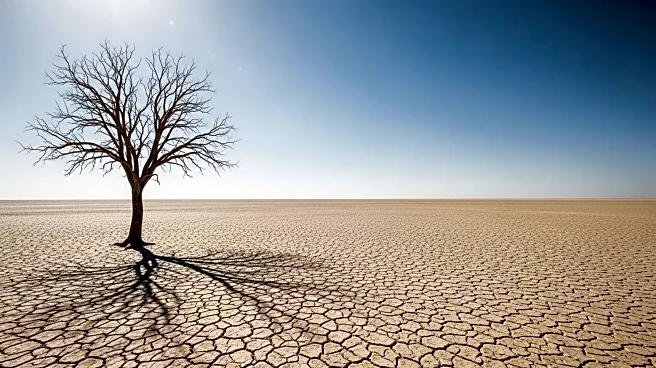What's Happening?
Australia has released a climate risk report detailing the severe impacts of global heating, including heatwaves, droughts, and coastal flooding. The report coincides with the government's new emissions reduction target for 2035, which aims to address these challenges. Researchers have mapped heat vulnerability across major cities, highlighting areas most susceptible to heat-related deaths. The report underscores the urgent need for action to mitigate climate change effects, as lower socioeconomic areas face higher risks. The government is under pressure to implement effective policies to reduce emissions and protect vulnerable communities.
Why It's Important?
The climate risk report and new emissions targets are crucial for Australia's future, as they outline the potential consequences of inaction. The findings emphasize the need for comprehensive climate policies that address both mitigation and adaptation. The report's focus on vulnerable populations highlights the social dimensions of climate change, underscoring the importance of equity in policy-making. Australia's approach to climate change could serve as a model for other countries facing similar challenges, influencing global climate strategies and negotiations.
What's Next?
Australia's government is expected to face increased pressure from environmental groups and the public to strengthen its climate policies. The release of the climate risk report may lead to more robust discussions on emissions targets and adaptation strategies. As the impacts of climate change become more apparent, there may be a push for international cooperation to address global heating. The government will need to balance economic growth with environmental sustainability, potentially leading to new trade arrangements and partnerships.
Beyond the Headlines
The report highlights the broader implications of climate change, including its impact on public health, infrastructure, and economic stability. By focusing on vulnerable populations, it raises ethical questions about the responsibility of governments to protect their citizens. The findings could lead to increased advocacy for climate justice, emphasizing the need for policies that prioritize the most affected communities. The report also underscores the interconnectedness of climate change with other global issues, such as poverty and inequality.











